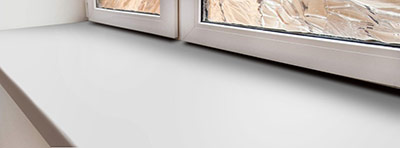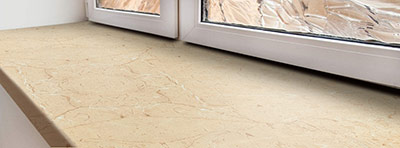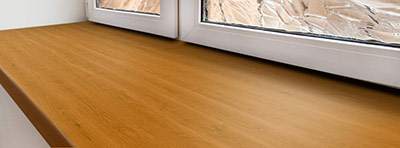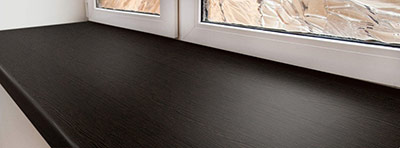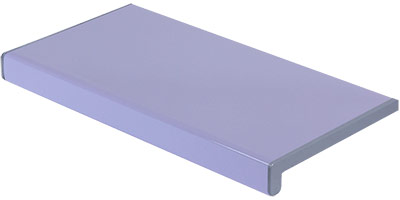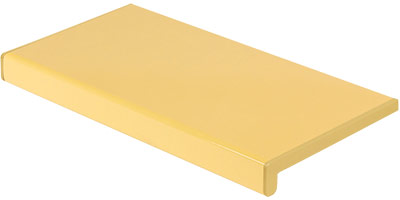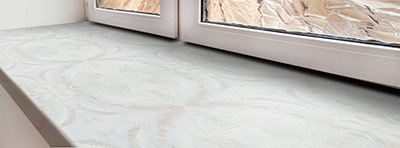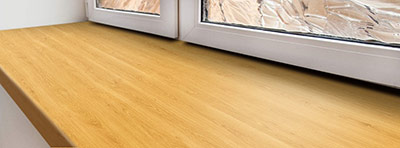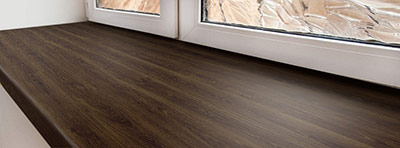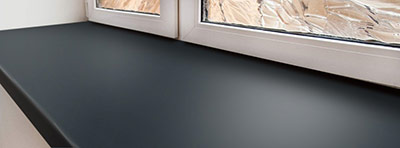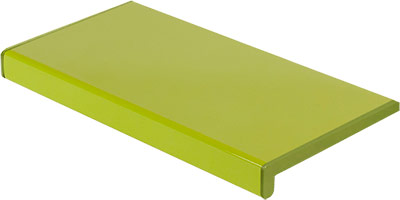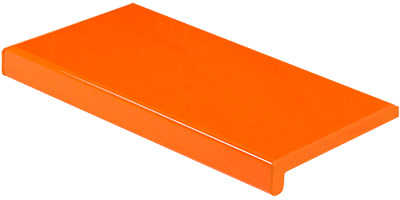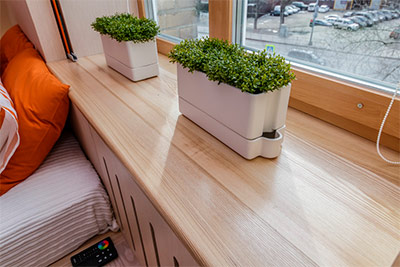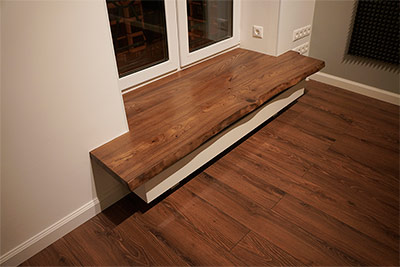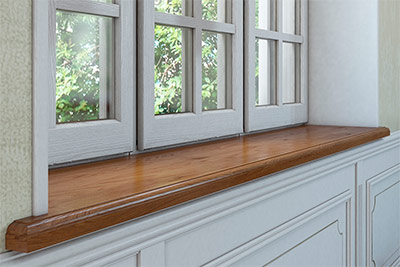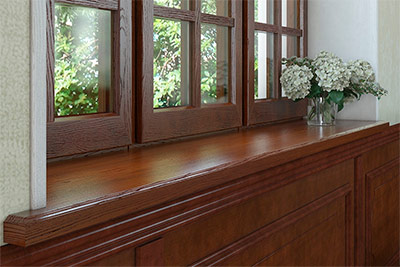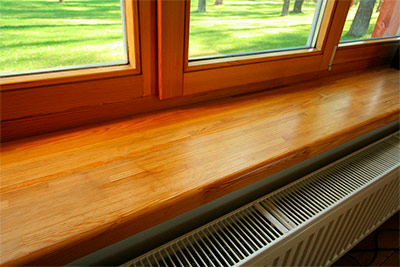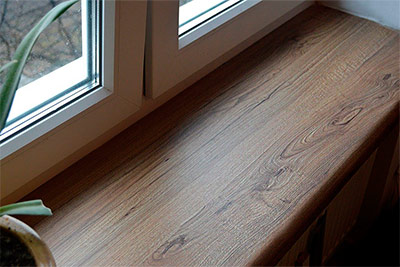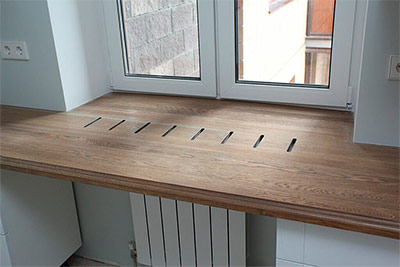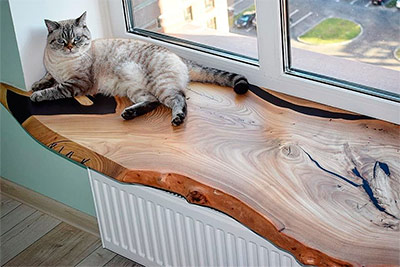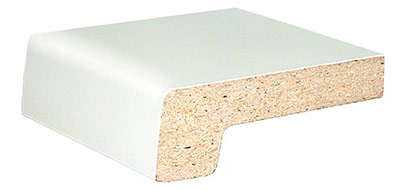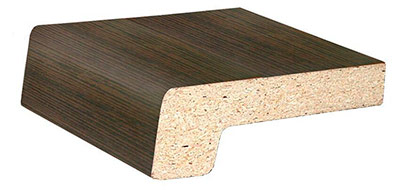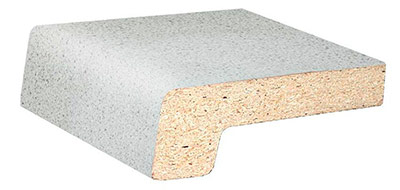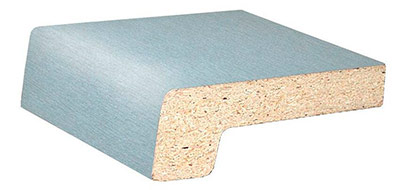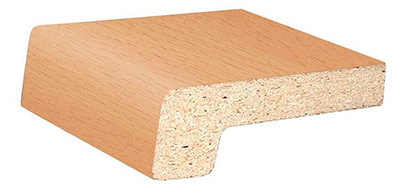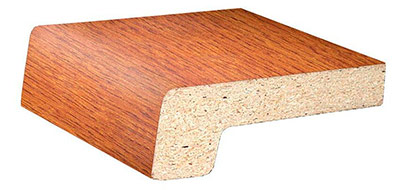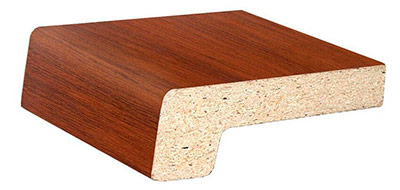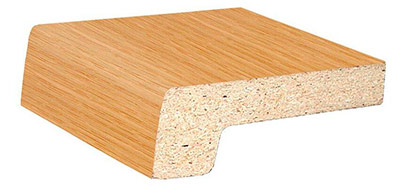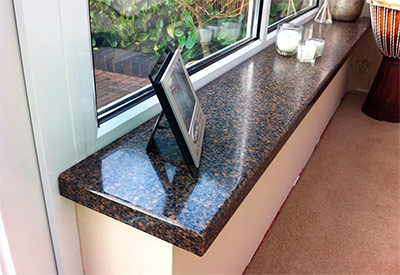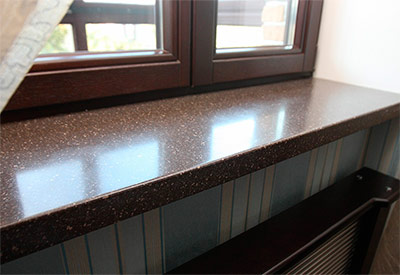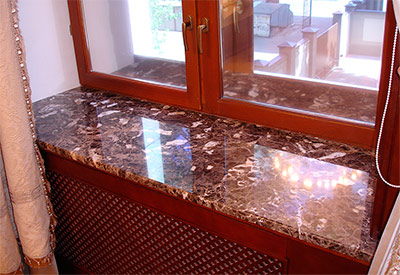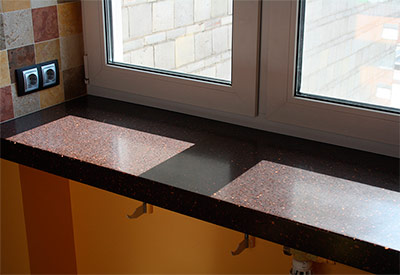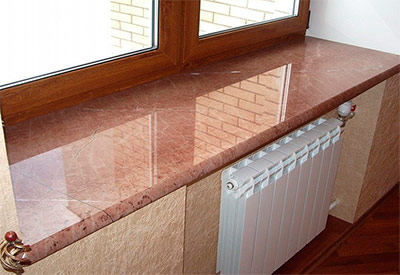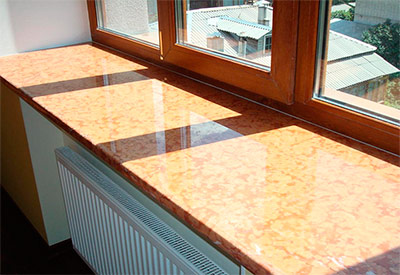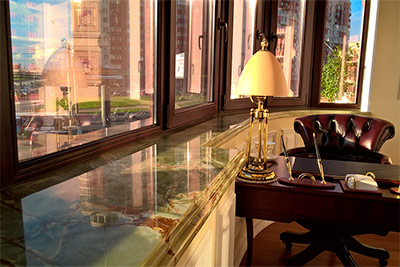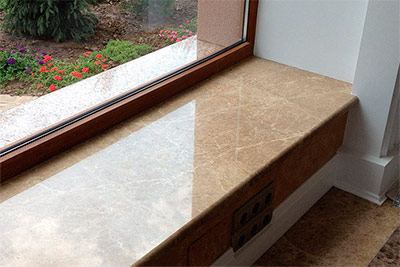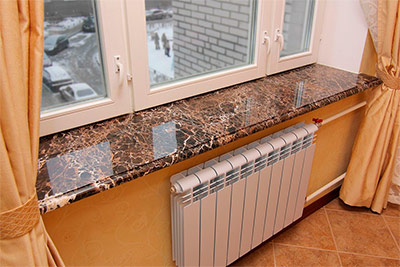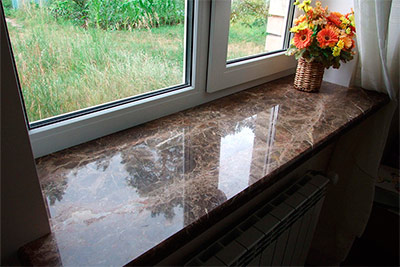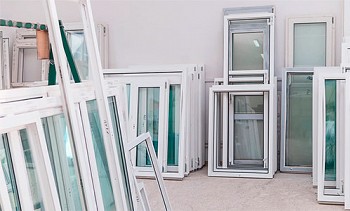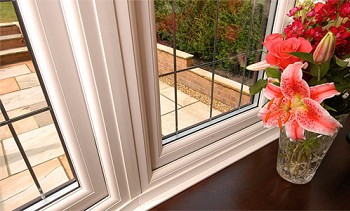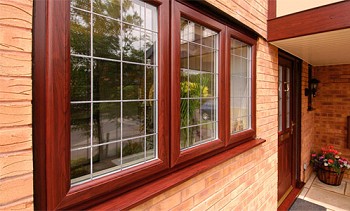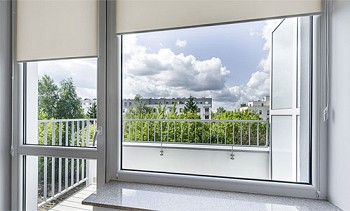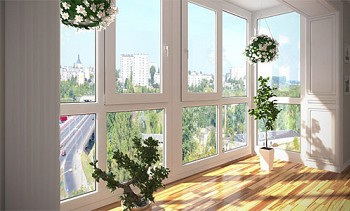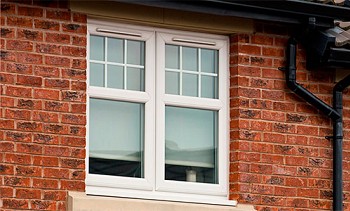Varieties of window sills, their advantages and disadvantages
The window sill is an important element of the interior - it makes the window opening complete and can serve as a shelf for flowers. In this material we will consider what types of window sills there are, their advantages and disadvantages.
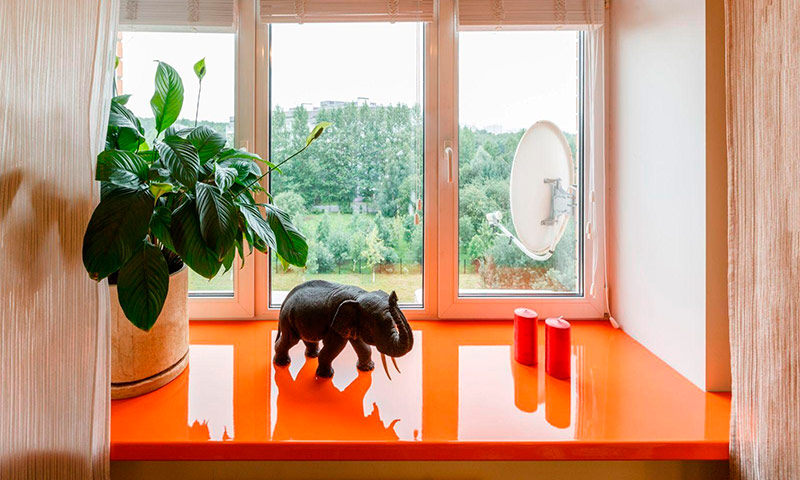
PVC window sills
Plastic window sills are the most common option in urban apartments. They are made of the same material as the window profile and have stiffeners to give strength. Inside the PVC profile there are air chambers, which facilitates the design, but retains strength.
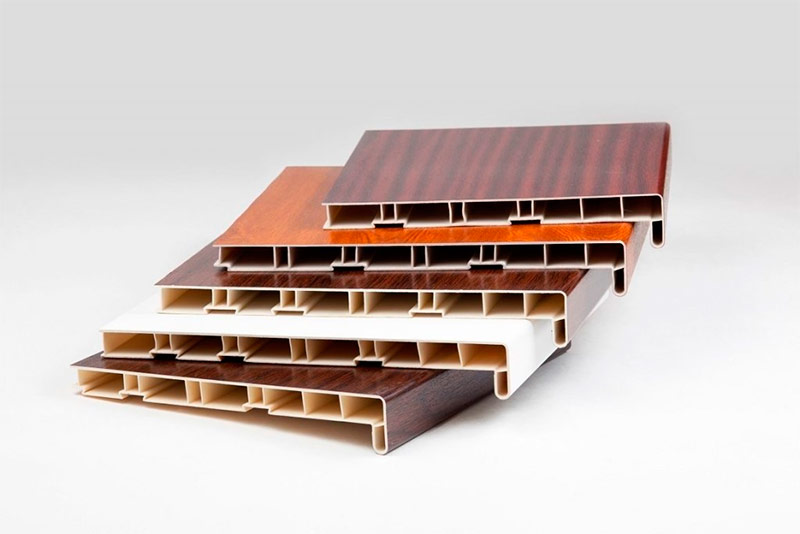
PVC window sill profile device.
Advantages of PVC window sills:
- resistance to moisture and sunlight;
- high rates of heat and waterproofing;
- long service life - from 30 to 50 years;
- simplicity in leaving;
- low cost,
- strength and durability.
In addition to the advantages, this species has a number of disadvantages. Thus, formaldehydes may be present in cheap materials, fumes which adversely affect human health. There is also a load limit - on the windowsills with a small number of stiffeners, you can not place heavy objects, sit or stand on them.
Manufacturers of PFH profiles produce window sills with a wide range of sizes and colors, so it will not be difficult for the buyer to choose the right size and color scheme for any window opening. In addition to the usual white, they can be painted in any color, as well as imitate natural materials with a glossy or matte surface.
Design options for PVC window sills
Wooden window sills
This type of window sill was popular before the appearance of polyvinyl chloride. However, all-natural fashion is returning again and natural wood window sills are again in demand in the construction market.
When choosing this option for arranging the window space, first of all, it is necessary to pay attention to the species of wood from which the window sill will be made. The most reliable are the massifs of oak, maple, chestnut, ash and mahogany. There are simpler and cheaper options from Siberian larch or pine.
Before becoming a full-fledged window sill, wood goes through a number of production processes - it is dried, polished and treated with oils and wax. To reduce the cost of production, some manufacturers do not use an entire array, but manufacture multilayer glued products. If the processing technology is followed correctly, then such a window sill will be only slightly inferior in performance to solid wood, and will cost much cheaper.
The main advantage of such products is their appearance and environmental friendliness. According to its physical properties, wood is much inferior to plastic - it is afraid of moisture and requires special care. In addition, the finish coating will have to be applied again every few years.
Design options for wooden window sills
Window sills from particleboard or MDF
Window sills made of chipboard or MDF are made by pressing and gluing sawdust left over from the woodworking industry. On top of the decor, a plastic film or wood veneer is applied to the pressed and glued material. Such panels have a large number of colors and can imitate the surfaces of natural materials. Panels can be cut to the desired size, and the ends of such a window sill are closed with special plugs
Both of these materials are considered suitable for the manufacture of window sills, but there are certain nuances:
1. A window sill made of chipboard will not withstand direct moisture on the surface - with prolonged contact, it will begin to swell and deform.
2. An MDF product is slightly stronger and more resistant to moisture, but direct contact should also be avoided.
These materials have advantages:
- low price,
- durability with proper care and protection from water,
- ease of installation
- an abundance of shapes and colors.
Design options for the design of window sills made of chipboard
Artificial stone window sill
Artificial stone is an excellent and not so expensive alternative to natural stone. In appearance, it practically does not differ from natural, and its physical and aesthetic properties are sometimes much higher.
It is made from mineral filler and binding polymer resins, and various dyes are used to give color. As a result of this technology, a monolith is obtained that is not inferior in characteristics and appearance to natural stone. The high viscosity of the material allows you to completely eliminate the risk of cracks and chips. In addition, the installation process of a window sill made of artificial stone is much simpler - working with it is not so time-consuming, and its weight is much less.
Unlike natural, artificial stone is not afraid of spilled liquids, dyes, mechanical stress and ultraviolet rays. Such a windowsill does not require special care, it is important to remember only one thing - it can not be washed with powdered detergents, since you can scratch the surface.
Design options for sills made of artificial stone
Window sill
Glass windowsill is a bold design idea that has found its audience relatively recently and now more and more people are paying attention to this material. With the help of glass, you can create a unique window sill in a short time and without large cash costs.
Many mistakenly believe that glass is an unreliable material that will shatter into fragments at the first impact. But this is absolutely not the case, modern technologies allow the production of particularly durable glass, which is resistant to shock, mechanical damage and scratches.
For the production of window sills using tempered glass with a thickness of 10 - 15 mm. Its front line is often made rounded, and the side parts are increased to 30 mm for the most massive structure and create a beautiful relief.
The advantages of this option include ease of installation, low cost, attractive and unusual appearance. The color palette is also rich - there are about 10 shades of glass on the market. In addition to monophonic, there are also colored glasses with unusual patterns and decorative elements and inserts.
Design options for glass window sills
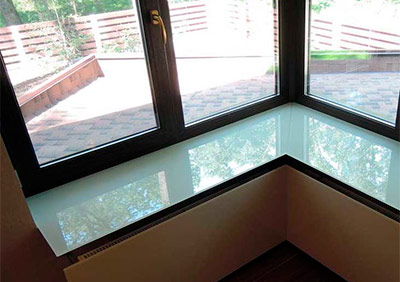
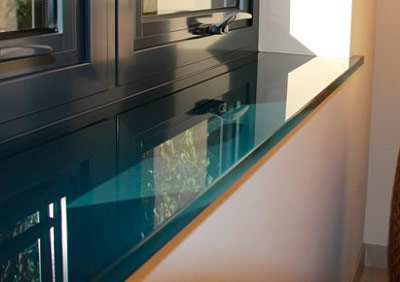
Window sills made of natural stone
A window sill made of natural stone is a synonym for luxury and prosperity. Not everyone can afford such a design solution - a stone is a very expensive and capricious material, but recently this type of arrangement of window space has become popular.
The main rocks in the manufacture are marble, onyx or granite. They are delivered to production in the form of large blocks - slabs, from which window sills will be carved in the future.
The most durable stone is granite, but this breed has one unpleasant property - the ability to accumulate radiation in itself, so when buying you need to carefully check documents and certificates.
Marble is slightly inferior in strength, but has a richer palette of colors - from pearl white to deep dark. Indian marble is considered the most beautiful - up to 4 different shades are counted in its color.
Onyx differs from previous versions in its ability to transmit light, which, combined with well-organized lighting, will create an amazing effect. Outwardly, this stone looks like marble, but its cost is much more expensive.
When choosing this material, it is worth considering some features:
- scratches and cracks may appear on the stone over time;
- painted and acidic liquids should not be spilled on a marble windowsill;
- products carved from the same breed may vary in color;
- Do not expose the material to prolonged contact with water.
It is very difficult to work with natural stone, so in order not to spoil this expensive material, it is better to entrust the transportation and installation of the window sill to professionals.
Design options for window sills made of natural stone

